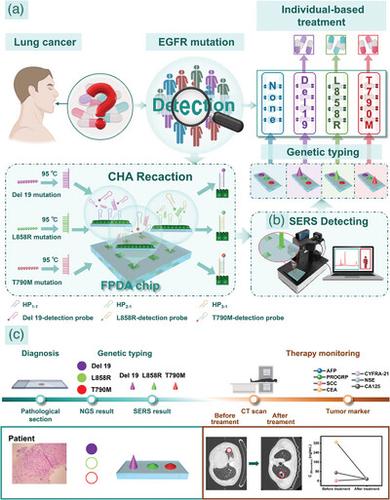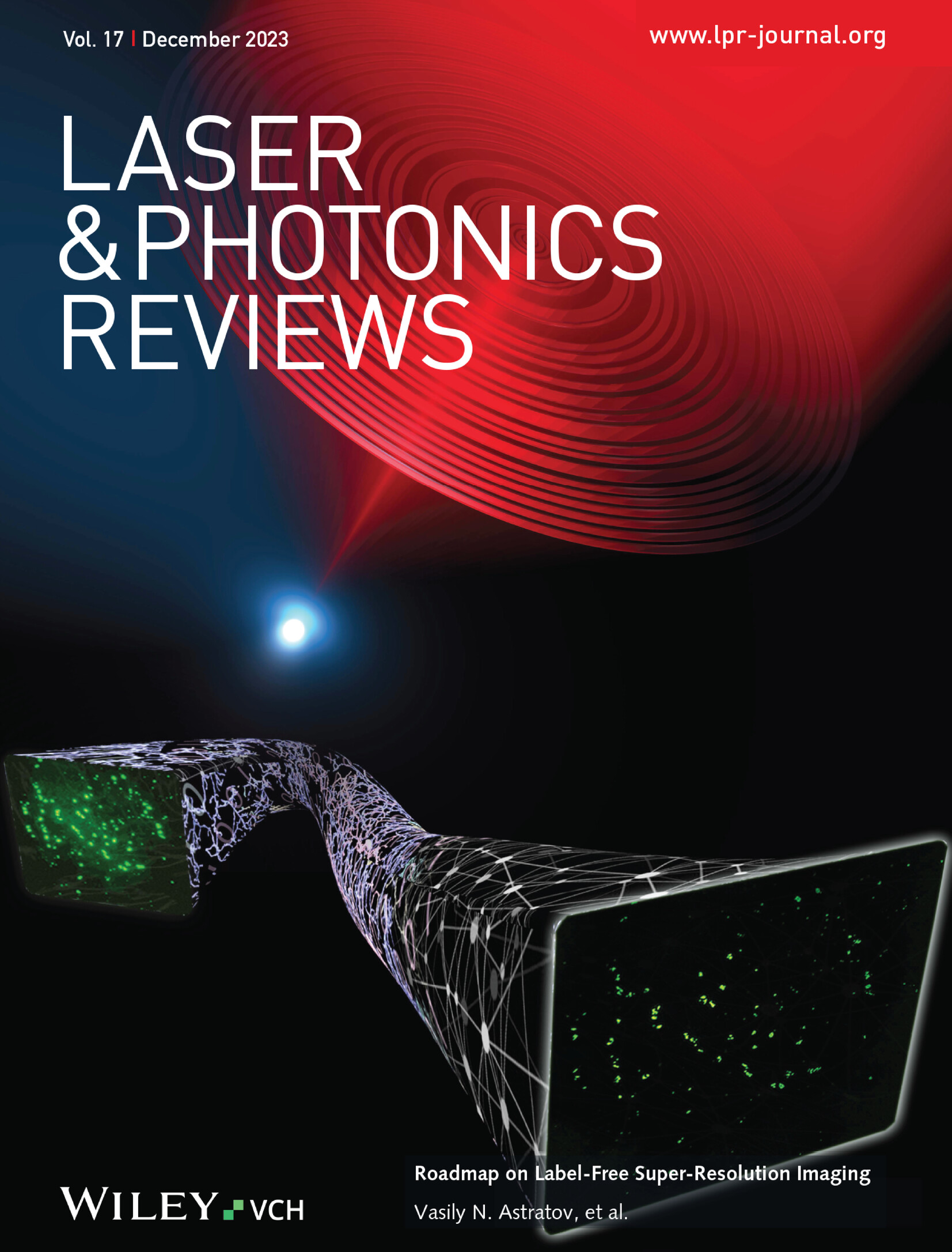Precise Genotyping Via Surface-Enhanced Raman Spectroscopy-Based Optical Sensing Chip for Guiding Targeted Therapy in Lung Cancer
IF 9.8
1区 物理与天体物理
Q1 OPTICS
引用次数: 0
Abstract
The emergence of “precision medicine” marks a notable shift in cancer treatment, moving from a tumor type–oriented approach to a more targeted, gene-oriented approach. Detecting low-abundance mutant genes in blood is challenging but crucial for personalized treatment plans. Herein, a novel platform combining catalytic hairpin self-assembly (CHA)-mediated self-calibrating surface-enhanced Raman spectroscopy (SERS) with a high-throughput Raman system (CCSPS) was designed. This platform enables ultrasensitive and rapid genotype analysis of gene mutations. The development of CCSPS specifically targets EGFR mutations, which serve as crucial therapeutic targets for precision therapy in lung cancer. This system shows excellent sensitivity and selectivity, capable of detecting multiple EGFR mutations (Del-19, L858R, and T790M) with a detection limit as low as attomolar levels. Additionally, precise genotyping analysis was successfully conducted on 42 clinical samples using the CCSPS, yielding results consistent with those obtained through next-generation sequencing. These results underscore the efficacy of the CCSPS in noninvasively identifying circulating tumor DNA (ctDNA) mutations, facilitating immediate therapeutic decision making at the bedside. In summary, the CCSPS is a fast, accurate, versatile, and compact testing system capable of precisely screening individuals who stand to benefit from targeted therapy, thus promoting personalized and precise healthcare.

通过基于表面增强拉曼光谱的光学传感芯片进行精确基因分型,指导肺癌靶向治疗
精准医疗 "的出现标志着癌症治疗的显著转变,即从以肿瘤类型为导向的方法转变为更具针对性、以基因为导向的方法。检测血液中的低丰度突变基因具有挑战性,但对个性化治疗方案至关重要。本文设计了一种新型平台,将催化发夹自组装(CHA)介导的自校准表面增强拉曼光谱(SERS)与高通量拉曼系统(CCSPS)相结合。该平台可对基因突变进行超灵敏、快速的基因型分析。CCSPS 的开发专门针对表皮生长因子受体(EGFR)突变,这是肺癌精准治疗的关键治疗靶点。该系统具有出色的灵敏度和选择性,能够检测多种表皮生长因子受体突变(Del-19、L858R 和 T790M),检测限低至阿托摩尔水平。此外,利用 CCSPS 对 42 份临床样本成功进行了精确的基因分型分析,结果与通过新一代测序获得的结果一致。这些结果凸显了 CCSPS 在无创鉴定循环肿瘤 DNA(ctDNA)突变方面的功效,有助于床旁即时做出治疗决策。总之,CCSPS 是一种快速、准确、多功能、小巧的检测系统,能够精确筛查有望从靶向治疗中获益的个体,从而促进个性化和精确的医疗保健。
本文章由计算机程序翻译,如有差异,请以英文原文为准。
求助全文
约1分钟内获得全文
求助全文
来源期刊
CiteScore
14.20
自引率
5.50%
发文量
314
审稿时长
2 months
期刊介绍:
Laser & Photonics Reviews is a reputable journal that publishes high-quality Reviews, original Research Articles, and Perspectives in the field of photonics and optics. It covers both theoretical and experimental aspects, including recent groundbreaking research, specific advancements, and innovative applications.
As evidence of its impact and recognition, Laser & Photonics Reviews boasts a remarkable 2022 Impact Factor of 11.0, according to the Journal Citation Reports from Clarivate Analytics (2023). Moreover, it holds impressive rankings in the InCites Journal Citation Reports: in 2021, it was ranked 6th out of 101 in the field of Optics, 15th out of 161 in Applied Physics, and 12th out of 69 in Condensed Matter Physics.
The journal uses the ISSN numbers 1863-8880 for print and 1863-8899 for online publications.

 求助内容:
求助内容: 应助结果提醒方式:
应助结果提醒方式:


